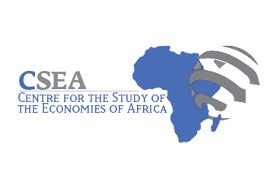Economists at the Centre for the Study of Economies of Africa (CSEA), a leading research firm with focus on developments in African countries’ economies, have charged the Federal Government to adopt policy reforms that can catalyze the performance of non-oil entities to ensure more accretion into the nation’s declining foreign reserve.
The analysts, in the firm’s latest ‘Nigeria Economic Update Issue 41’ circulated to our correspondent on Tuesday, noted that had been a rise in the number of Nigerians moving to other countries for studies and work, thereby creating a demand-supply deficit and pushing the Naira exchange rate to an all-time high at different windows.
This is even as they observed that the Central Bank of Nigeria (CBN) had also been intervening in the Foreign Exchange (FX) market to minimise the rate of increase, leading to a trend of steady declines in foreign reserves since the beginning of September 2022
Specifically, the CSEA’s experts stated that data from the CBN showed that Nigeria’s external reserve dropped to $37.9 billion as of Wednesday, October 12, 2022, from $38.8 billion on September 12, linking the decline to the apex bank’s continuous intervention in the exchange rate market and dwindling export earnings.
In addition, the economists maintained that there had been an increase in the demand for foreign exchange for importing inputs and finished products with the attendant negative implications for the nation’s foreign reserve.
On what should be done to reverse the ugly trend, the analysts advocated: “While it is prudent to intervene by pumping more forex from the external reserve, it is also essential, for sustainability, that government strive to boost export earnings to ensure more accretion into the reserve.
“As a result, the government needs to strengthen reforms to increase non-oil exporting firms’ productivity and competitiveness in the international market”, they added.






